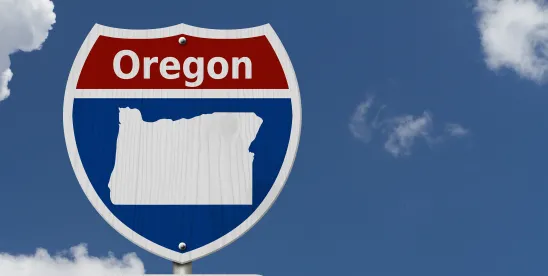On March 27, 2024, Oregon Governor Tina Kotek signed into law House Bill (HB) 4127, which will impose notice and recordkeeping requirements on covered employers of certain warehouse workers when using quotas to measure worker productivity. The law becomes effective January 1, 2025.
Quick Hits
- Oregon joins several other states in enacting a state law that regulates employers’ use of production quotas at warehouse distribution centers.
- The law applies to employers that employ or exercise control over the wages, hours, or working conditions of employees employed at a warehouse distribution center of one hundred or more nonexempt employees at a single warehouse distribution center or 1,000 or more nonexempt employees at one or more warehouse distribution centers in Oregon.
- The law takes effect on January 1, 2025.
Applicability
The law applies to employers that employ or exercise control over the wages, hours, or working conditions of the employees employed at a warehouse distribution center of one hundred or more nonexempt employees at a single warehouse distribution center or 1,000 or more nonexempt employees at one or more warehouse distribution centers in Oregon.
“Warehouse distribution center” is defined to include establishments engaging in activities falling under specific NAICS codes for warehousing and storage; merchant wholesale (durable and nondurable goods); or retailing using electronic shopping and mail-order houses. For purposes of this law, “warehouse distribution center” does not include establishments engaging in services relating to certain NAICS codes for farm product warehousing and storage; refrigerated warehousing and storage; merchant wholesale of professional medical, dental, and hospital equipment and supplies; merchant wholesale of drugs and druggists’ sundries; couriers and express delivery services; and merchant wholesale of carbonated beverages, wine and distilled alcoholic beverages, or beer and ale.
“Employee” is defined as “an employee who is subject to federal or state laws relating to minimum wage and overtime” (i.e., a nonexempt employee) and “who works at a warehouse distribution center.” For purposes of this law, “employee” does not include a driver or courier to or from warehouse distribution centers.
The law does not apply to an employer who is subject to a collective bargaining agreement under which employees are subject to a performance evaluation metric that is subject to review and negotiation according to the terms of the agreement and that provides for rights to request records that are substantially equivalent to the rights under this law, as detailed below.
Quotas
The law requires covered employers to provide each employee with written documentation in the language the employer regularly uses to communicate with the employee summarizing any quota to which the employee is subject. “Quota” is defined as “a work standard under which an employee is assigned or required to perform at a specified productivity or speed, perform a quantified number of tasks or handle or produce a quantified number of materials, within a defined time period and under which the employee may suffer an adverse employment action if they fail to complete the performance standard.”
The documentation must include:
- “The quantified number of tasks to be performed, or materials to be produced or handled, within a defined time period”; and
- “A description of the potential consequences, including any adverse employment actions, that an employee may face as a result of the employee’s failure to meet the applicable quota.”
This documentation must be provided to employees at the time of hire, within two business days following a change to the quota to which the employee is subject, and to an employee when an employer takes an adverse action against the employee for failure to meet the quota. Employers may not take an adverse employment action against an employee for failing to meet a quota for which an employee did not receive the required written documentation.
Employee Right to Request Records
Current and former employees have the right to request related records if they believe they have been disciplined for failing to meet a quota.
Current employees may request the written documentation detailing the quota and potential consequences and the employee’s work speed data for the ninety days immediately preceding the date of the employee’s request.
Former employees may request the written documentation detailing the quota and potential consequences (related to the quota to which the former employee was subject for the ninety days preceding the employee’s separation from the employer) and “[t]he former employee’s work speed data for the 90 days immediately preceding the date of the former employee’s most recent separation from employment.” Former employees may request these records within three years of their separation from employment.
Employers must provide these records “free of charge and as soon as practicable upon request of a current or former employee, but not later than 21 calendar days from the date of the request.”
Considerations for Multistate Employers
Other states, such as California and Washington, have recently enacted similar legislation, so employers with operations in these states may want to also review applicable requirements to ensure compliance.




 />i
/>i
